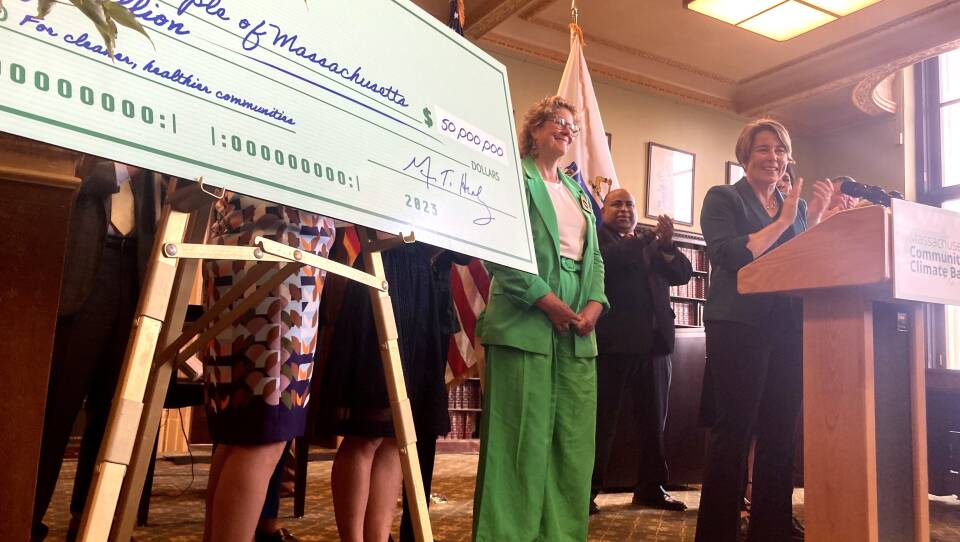Moderate and low-income Massachusetts homeowners will be eligible to receive loans of up to $100,000 to tackle clean energy projects, under a new loan program announced Monday by state officials.
The loans are the first consumer offering from a community climate bank Gov. Maura Healey launched last year to help both speed the transition away from fossil fuels and ease high costs of living in the state.
Under former Gov. Charlie Baker, Massachusetts lawmakers set a goal of achieving net-zero carbon emissions by 2050 — and decarbonizing the state's housing stock will be a major piece of reaching that target. State officials say residential and commercial buildings account for 30% of all greenhouse gas emissions in Massachusetts, and 60% of building emissions come from single-family and small multi-family homes.
The Massachusetts Community Climate Bank is allocating $20 million for the program, with the goal of providing up to 1,000 loans over two years.
Loan applicants must live in the building they own, from a single-family house to a multi-family building with up to four units. To be eligible, homeowners must earn less than 135% of the area median income, a limit that ranges from almost $125,000 in Berkshire County to more than $190,000 in Greater Boston.
Individual projects must also reduce total energy usage by at least 20%. Maggie Super Church, the Massachusetts Community Climate Bank's director of policy and programs, said the loan program “really covers the full range of energy improvements that somebody may want to make to their home.”
Those improvements include things like dealing with mold, roof replacement or repairs, weatherizing different parts of the home, and installing heat pumps, rooftop solar panels or a charging station for electric vehicles.
“The Energy Saver Home Loan program that we're launching today will provide an opportunity for homeowners across Massachusetts to affordably and easily make a whole range of clean energy improvements to their homes,” Super Church said. “We're making this possible by providing really high-touch customer support to help people all the way through the process, and pairing that with very low-cost financing to make it possible for people to make those improvements.”
Homeowners interested in the loans will be linked with a “concierge service provider” in their area to review eligibility and help set up a home energy assessment, Super Church said. The service providers will help develop a plan for energy improvements, identify rebates and other incentives that can be used to pay down some of the loan, connect the homeowner with a local lender, and help find contractors.
No upfront cash is required, and the loans, which will be serviced at MassHousing's mortgage servicing center, will include an 18-month interest-only period.
The climate bank is located within MassHousing, a quasi-public agency that finances affordable housing.
MassHousing CEO Chrystal Kornegay said the loan program “will empower homeowners across Massachusetts to help advance our state’s ambitious clean energy goals, while slashing their home energy usage and making their homes healthier and more comfortable.”








